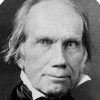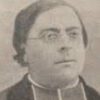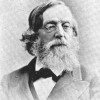We should be more ashamed to distrust our friends than to be deceived by them.
[Il est plus honteux de se défier de ses amis que d’en être trompé.]François VI, duc de La Rochefoucauld (1613-1680) French epigrammatist, memoirist, noble
Réflexions ou sentences et maximes morales [Reflections; or Sentences and Moral Maxims], ¶84 (1665-1678) [tr. Heard (1917)]
(Source)
First appeared in the second (1666) edition. Compare to Maxim 86, also from that edition: "Our distrust justifies the deception of others [Notre défiance justifie la tromperie d’autrui.]"
(Source (French)). Alternate translations:
It is much less for a Man's Honour to distrust his Friends, than to be deceived by them.
[tr. Stanhope (1694), ¶85]
It is more dishonourable to distrust a friend, than to be deceived by him.
[pub. Donaldson (1783), ¶171; ed. Lepoittevin-Lacroix (1797), ¶81; ed. Carvill (1835), ¶151]
It is more disgraceful to distrust; one's friends than to be deceived by them.
[ed. Gowens (1851), ¶87]
It is more disgraceful to distrust than to be deceived by our friends.
[tr. Bund/Friswell (1871), ¶84]
It is more disgraceful to mistrust one's friends than to be the victim of their treachery.
[tr. Stevens (1939), ¶84]
It is more shameful to distrust one's friends than to be deceived by them.
[tr. FitzGibbon (1957), ¶84; tr. Tancock (1959), ¶84]
It is more shameful to distrust our friends than to be deceived by them.
[tr. Kronenberger (1959), ¶84; tr. Whichello (2016), ¶84]
Quotations about:
honor
Note not all quotations have been tagged, so Search may find additional quotes on this topic.
On this account violence prevails amongst the French; for these laws of honour require a gentleman to avenge himself when he has been insulted; but, on the other hand, justice punishes him unmercifully when he does so. If one follows the laws of honour, one dies upon the scaffold; if one follows those of justice, one is banished for ever from the society of men: this, then, is the barbarous alternative, either to die, or to be unworthy to live.
[Ainsi les François sont dans un état bien violent : car les mêmes lois de l’honneur obligent un honnête homme de se venger quand il a été offensé ; mais, d’un autre côté, la justice le punit des plus cruelles peines lorsqu’il se venge. Si l’on suit les lois de l’honneur, on périt sur un échafaud ; si l’on suit celles de la justice, on est banni pour jamais de la société des hommes. Il n’y a donc que cette cruelle alternative, ou de mourir, ou d’être indigne de vivre.]Charles-Lewis de Secondat, Baron de Montesquieu (1689-1755) French political philosopher
Persian Letters [Lettres Persanes], Letter 91, Usbek to Ibben (1721) [tr. Davidson (1891)]
(Source)
(Source (French)). Alternate translations:
So that the French are in a state of great violence: for, on one hand, the laws of honour oblige a man to revenge himself if he is affronted; and, on the other, justice inflicts the most cruel punishments upon him for doing so. If you follow the laws of honour, you lose your head upon a scaffold; if those of justice, you are driven out for ever from the society of men; so that you have only the unhappy choice either of dying, or being unworthy to live.
[tr. Ozell (1760 ed.)]
So that the French are in a great state of violence: for these laws of honour oblige a well bred man to revenge himself when he hath been affronted; but, on the other hand, justice punishes him with the severest penalties when he hath done so. If men follow the laws of honour, they die upon a scaffold \; if those of justice, they are banished for ever from the society of men: there is then only this cruel alternative, either to die, or to be unworthy to live.
[tr. Floyd (1762), # 90]
Accordingly, the French are in a very perturbed condition; for the laws of honor compel a gentleman to avenge himself when he has been insulted; and, on the other hand, justice punishes him with the severest penalties when he has avenged himself. If a man obey the laws of honor, he dies on the scaffold; if he obey the laws of justice, he is forever shunned by his fellow-men; this, then, is the cruel alternative, either to die, or to be unworthy to live.
[tr. Betts (1897)]
And so the French remain in a state of violence, for the laws of honor require a gentleman to avenge himself if insulted; but justice, on the other hand, punishes him cruelly for his vengeance. If you follow the laws of honor, you perish on the scaffold; but to follow the laws of justice means perpetual banishment from the society of men. There is, then, only this harsh alternative: to die or to be unworthy of life.
[tr. Healy (1964)]
So the French find themselves in a most dire situation: for those same laws of honour oblige a gentleman to avenge himself if he has been offended, but, on the other hand, the offices of justice punish him in the harshest manner when he does take his revenge. If he obeys the laws of honour, he dies upon the scaffold; if he obeys the laws of the land, he is banished for ever from the society of men. All he can do, then, is choose between these cruel alternatives: to die, or to be unworthy of living.
[tr. Mauldon (2008), # 88]
I certainly had not the smallest reason to fear that the execution of this murderer of Roman citizens would cause me to be blamed by posterity. And indeed, even if this were a serious danger, I have always been convinced that unpopularity earned by honourable actions is not unpopularity at all, but renown.
[Certe verendum mihi non erat, ne quid hoc parricida civium interfecto invidiae mihi in posteritatem redundaret. Quodsi ea mihi maxime inpenderet tamen hoc animo fui semper, ut invidiam virtute partam gloriam, non invidiam putarem.]Marcus Tullius Cicero (106-43 BC) Roman orator, statesman, philosopher
Orationes in Catilinam [Catilinarian Orations], No. 1, § 12, cl. 29 (1.12.29) (63-11-08 BC) [tr. Grant (1960)]
(Source)
(Source (Latin)). Alternate translations:
Truly I have no reason to fear, least this Murderer of the Citizens being slain, any envy should rise against me for the future. But if never so much did hang over me, yet I was alwayes of this Judgment, to think Envy gotten by Vertue to be no Envy but Glory.
[tr. Wase (1671)]
I could have no reason to fear; that for the execution of a traitor and a parricide I should stand condemned by the voice of posterity. But let me add, were the severest censure to be the certain consequence, it has ever been my settled opinion, that reproach, when earned by virtue, is not reproach, but the truest glory.
[tr. Sydney (1795)]
Surely I had no cause to fear lest for slaying this parricidal murderer of the citizens any unpopularity should accrue to me with posterity. And if it did threaten me to ever so great a degree, yet I have always been of the disposition to think unpopularity earned by virtue and glory, not unpopularity.
[tr. Yonge (1856)]
Surely it was not to be dreaded by me, lest, if this parricide of the citizens were slain, any odium might redound for me to posterity. But if that impended over myself in particular, yet I have always been of this opinion, that I should consider the odium acquired by merit as glory and not as odium.
[tr. Mongan (1879)]
Certainly it was not to be feared to (by) me, lest any (thing) of unpopularity might redound to me unto posterity, this parricide of citizens being slain. But if it might impend (threaten) to me mostly (very much), yet I have been always with this mind, that I might think envy produced by virtue, glory, not envy.
[tr. Underwood (1885)]
Certainly it was not to be feared by me, lest any ill-will should redound to [affect] me for posterity, this parricide of citizens having been slain. But if this should threaten me very much, yet I have been always with [of] this mind, that I should think ill will produced by virtue, glory, not ill will.
[tr. Dewey (1916)]
Certainly I did not have to fear, lest with this parricide of citizens having been killed, anything of unpopularity might run over in posterity. And yet, if these were to threaten me especially, however, I have always been in this mind, so that I thought that unpopularity obtained by virtue is an honour, not unpopularity at all.
[IB Notes]
I have always been of the opinion that infamy earned by doing what is right is not infamy at all, but glory.
[E.g.]
Whence had you this illustrious name?
From virtue and unblemish’d fame.
By birth the name alone descends;
Your honour on yourself depends:
Think not your coronet can hide
Assuming ignorance and pride.
Learning by study must be won,
‘Twas ne’er entail’d from son to son.John Gay (1685-1732) English poet and playwright
“The Pack-Horse and Carrier (To a young Nobleman),” ll. 41-42
(Source)
Some printings of the poem leave off the prologue, of which this is a part.
The world runs on from one folly to another; and the man who, solely from regard to the opinion of others, and without any wish or necessity of his own, toils after gold, honour, or any other phantom, is no better than a fool.
[Alles in der Welt läuft doch auf eine Lumperei hinaus, und ein Mensch, der um anderer willen, ohne daß es seine eigene Leidenschaft, sein eigenes Bedürfnis ist, sich um Geld oder Ehre oder sonst was abarbeitet, ist immer ein Tor.]
Johann Wolfgang von Goethe (1749-1832) German poet, statesman, scientist
Die Leiden des Jungen Werthers [The Sorrows of Young Werther], Book 1, “July 20” (1774) [tr. Boylen (1854)]
(Source)
(Source (German)). Alternate translation:
A man who works at another’s will, not for his own passion or his own need, but for money or honor, is always a fool.
[tr. 1779]
People feel shameful to be poor and underprivileged in a well-run country. You should feel shameful if you are rich and aristocratic in a decadent and corrupt country.
[邦有道、貧且賤焉、恥也、邦無道、富且貴焉、恥也。]
Confucius (c. 551- c. 479 BC) Chinese philosopher, sage, politician [孔夫子 (Kǒng Fūzǐ, K'ung Fu-tzu, K'ung Fu Tse), 孔子 (Kǒngzǐ, Chungni), 孔丘 (Kǒng Qiū, K'ung Ch'iu)]
The Analects [論語, 论语, Lúnyǔ], Book 8, verse 13, sec. 3 (8.13.3) (6th C. BC – AD 3rd C.) [tr. Li (2020)]
(Source)
Brooks (below) says that this analect was added into Book 8 at the time of Book 14 being produced.
(Source (Chinese)). Alternate translations:
When a country is well-governed, poverty and a mean condition are things to be ashamed of. When a country is ill-governed, riches and honour are things to be ashamed of.
[tr. Legge (1861)]
Under a good government it will be a disgrace to him if he remain in poverty and low estate; under a bad one it would be equally disgraceful to him to hold riches and honours.
[tr. Jennings (1895)]
When there is justice and order in the government of his own country, he should be ashamed to be poor and without honour; but when there is no justice in the government of his own country he should be ashamed to be rich and honoured.
[tr. Ku Hung-Ming (1898)]
When law and order prevail in his State, he is ashamed to be needy and of no account. When law and order fail, he is ashamed to be in affluence and honour.
[tr. Soothill (1910)]
When a state is functioning, poverty and meanness are shameful; when a state is in chaos (ill governed) riches and honours are shameful. [Let us say: under a corrupt government.]
[tr. Pound (1933)]
When the Way prevails in your own land, count it a disgrace to be needy and obscure; when the Way does not prevail in your land, then count it a disgrace to be rich and honoured.
[tr. Waley (1938)]
If a state is following The Right Way, it is a disgrace to be in poverty and a low estate therein; if not, it is a disgrace to be rich and honored therein.
[tr. Ware (1950)]
It is a shameful matter to be poor and humble when the Way prevails in the state. Equally, it is a shameful matter to be rich and noble when the Way falls into disuse in the state.
[tr. Lau (1979)]
When the Way prevails in your own state, to be made poor and obscure by it is a disgrace; but when teh Way does not prevail in your own state, to be made rich and honourable by it is a disgrace.
[tr. Dawson (1993)]
In a country where the Way prevails, it is shameful to remain poor and obscure; in a country which has lost the Way, it is shameful to become rich and honored.
[tr. Leys (1997)]
When the state possesses the Way and you are poor and lowly, it is a shame; when the state loses the Way and you are rich and noble, it is also a shame.
[tr. Huang (1997)]
If the country is on the right way, it is the shame to be poor and low; If the country is not on the right way, it is the shame to be rich and honor.
[tr. Cai/Yu (1998), #201]
It is a disgrace to remain poor and without rank when the way prevails in the state; it is a disgrace to be wealthy and of noble rank when it does not.
[tr. Ames/Rosemont (1998)]
When the state has the Way, to be poor and humble in it is shameful; when the state has not the Way, to be wealthy and honored in it is shameful.
[tr. Brooks/Brooks (1998)]
When the Way rules in your country, there's shame in poverty and obscurity; when the Way's lost in your country, there's shame in wealth and renown.
[tr. Hinton (1998)]
In a state that has the Way, to be poor and of low status is a cause for shame; in a state that is without the Way, to be wealthy and honored is equally a cause for shame.
[tr. Slingerland (2003)]
When the state follows the Way, being poor and lowly is a cause for shame. When the state is without the Way, being rich and eminent is a cause for shame.
[tr. Watson (2007)]
When the moral way prevails in a state, being poor and lowly is a cause for shame. When the moral way does not prevail in the world, having wealth and position is a cause for shame.
[tr. Chin (2014)]
What prayer should we call wise?
What gift of Heaven should man
Count a more noble prize,
A prayer more prudent, than
To stretch a conquering arm
Over the fallen crest
Of those who wished us harm?
And what is noble every heart loves best.[τί τὸ σοφόν; ἢ τί τὸ κάλλιον
παρὰ θεῶν γέρας ἐν βροτοῖς
ἢ χεῖρ᾽ ὑπὲρ κορυφᾶς
880τῶν ἐχθρῶν κρείσσω κατέχειν;
ὅ τι καλὸν φίλον ἀεί.]Euripides (485?-406? BC) Greek tragic dramatist
Bacchæ [Βάκχαι], l. 877ff, Stasimon 3 (Ode 4), Refrain [Chorus/Χορός] (405 BC) [tr. Vellacott (1973)]
(Source)
While the passage seems to praise the putting down of one's enemies as the greatest gift of the gods, some modern scholars suggest the final line raises doubts or disagrees with that conclusion.
(Source (Greek)). Alternate translations:
What greater privilege 'midst the fell debate
Can sage or chieftain from the Gods request
Than that of ever fast'ning on the crest
Of the miscreant whom we hate?
Pleasure with unsullied fame
Ever must alliance claim.
[tr. Wodhull (1809)]
What is wisdom? Or what greater honor do the gods give to mortals than to hold one's hand in strength over the head of enemies? What is good is always dear.
[tr. Buckley (1850)]
What is wisest? what is fairest,
Of god's boons to man the rarest?
With the conscious conquering hand
Above the foeman's head to stand.
What is fairest still is dearest.
[tr. Milman (1865)]
What wiser and what nobler gift
Can the good gods bestow on man,
Than when his hands they strengthen, till
He conquers o’er his foeman’s head:
That which is noble, ever is dear.
[tr. Rogers (1872)]
What is true wisdom, or what fairer boon has heaven placed in mortals’ reach, than to gain the mastery o’er a fallen foe? What is fair is dear for aye.
[tr. Coleridge (1891)]
What wisdom's crown, what guerdon, shines more glorious
That Gods can give the sons of men, than this --
O'er crests of foes to stretch the hand victorious?
Honour is precious evermore, I wis.
[tr. Way (1898)]
What else is Wisdom? What of man's endeavour
Or God's high grace, so lovely and so great?
To stand from fear set free, to breathe and wait;
To hold a hand uplifted over Hate;
And shall not Loveliness be loved for ever?
[tr. Murray (1902)]
What is wisdom? What gift of the gods
is held in honor like this:
to hold your hand victorious
over the heads of those you hate?
Honor is precious forever.
[tr. Arrowsmith (1960)]
What is wisdom? Or what fairer
gift from the gods in men's eyes
than to hold the hand of power
over the head of one's enemies?
And "what is fair is always followed."
[tr. Kirk (1970)]
What is wisdom, ah! what fairer thing
to mortal men can the gods bestow
than holding high overhead
a firmer first over the foe?
The fair is dear, and forever.
[tr. Neuburg (1988)]
What is wisdom? Which
of all the God-given gifts
is more beneficial to man
than the power to hold
an enemy powerless at bay?
That which is good is welcome forever.
[tr. Cacoyannis (1982)]
What is wisdom? Or what lovelier gift
From the gods, in moral eyes
Than to hold a stronger hand
Over enemy heads:
Honor is dear -- always.
[tr. Blessington (1993)]
What good is mere cleverness?
Or rather, what god-given gifts
bring more honor to mortals
than to hold the hand of mastery
over the head of the enemy?
Whatever is honorable is dear always.
[tr. Esposito (1998)]
What is wise? What is the finest gift
that gods can give to mortals?
A hand on the heads
of their enemies, pushing down?
[No.] What is fine is loved always.
[tr. Woodruff (1999)]
What is wise? What fit from the gods
Do mortals judge more beautiful
Than to hold our outstretched
Strong hand over an enemy's head?
What is beautiful is what is always loved.
[tr. Gibbons/Segal (2000)]
What good is cleverness? Is there any god-given privilege
nobler than the sight of men
than to hold one's hand in triumph
over the heads of foes?
What is noble is always loved.
[tr. Kovacs (2002)]
What is true wisdom?
What is beauty?
What could be better
Than in your hand to hold
Your enemy's fate?
Beauty is always truth;
And truth beauty.
[tr. Teevan (2002)]
What better, what wiser gift a god could give to men than to hold their hand high above their head as a sign of victory over their enemy?
I always admire the good.
[tr. Theodoridis (2005)]
What is it to be wise? And what gift of the
Immortals is more gracious in humans?
Is it holding your hand over
Your enemies’ head?
What's right is always welcome.
[tr. Valerie (2005)]
What is wisdom? What is finer than the rights
men get from gods -- to hold their powerful hands
over the heads of their enemies?
Ah yes, what's good is always loved.
[tr. Johnston (2008), l. 1079ff]
What is wisdom?
The greatest gift of the gods is honour:
to reach your hand in triumph up
over the heads of the enemy.
Honour is everything.
[tr. Robertson (2014)]
What is wisdom? Here, now?
What is the highest blessing of gods to mortals?
It is to stretch out your hand
over the head of the one you hate,
the one that hates you,
and know your strength is greater.
Doesn’t that always feel good?
[tr. Pauly (2019)]
What wisdom should guide us? What gift of the gods do people prize more than a strong hand to hold over an enemy's head? Honor is always loved.
[tr. Behr/Foster (2019)]
What is wisdom [sophon]? Or what finer prize
do the gods give to mortals than to hold one’s hand
in victory over the head of one’s enemies?
Whatever is beautiful [kalon] is near and dear [philon] forever.
[tr. Buckley/Sens/Nagy (2020)]
It is because gold is rare that gilding has been invented, which, without having its solidity, has all its brilliance. — Thus, to replace the kindness we lack, we have devised politeness, which has all its appearance.
[C’est parce que l’or est rare que l’on a inventé la dorure, qui, sans en avoir la solidité, en a tout le brillant. Ainsi, pour remplacer la bonté qui nous manque, nous avons imaginé la politesse, qui en a toutes les apparences.]
Pierre-Marc-Gaston de Lévis (1764-1830) French noble, politician, author, aphorist
Maximes et Essais sur Différents Sujets, “Pensées Détachées,” # 180 (1808)
(Source)
(Source (French)). Frequently misattributed to his more famous father, Francis de Gaston, first Duke de Lévis.
The full aphorism also includes a final clause, "et au défaut de vertu, nous avons l'honneur, qui en a l'éclat" ("and, in default of virtue, we have honor, which has its luster").
The French was incorporated in standard French grammar books for many years.
The English translation shows up in several cases without any attribution and in varied contexts (1, 2, 3).
I was raised in an old-fashioned American tradition and there were certain homely things that were taught to me: To try to tell the truth, not to bear false witness, not to harm my neighbor, to be loyal to my country, and so on. In general, I respected these ideals of Christian honor and did as well with them as I knew how. It is my belief that you will agree with these simple rules of human decency and will not expect me to violate the good American tradition from which they spring.
Lillian Hellman (1905-1984) American playwright, screenwriter
Letter to Rep. John S. Wood, House Committee on Un-American Activities (19 May 1952)
(Source)
On declining to "name names" before HUAC (see here). National Archives copy. Reprinted in The Nation (31 May 1952).
As a result of the letter and her invoking the Fifth Amendment at the HUAC hearings, Hellman was put on the Hollywood Blacklist for the rest of the decade.
Miserable mortals! Can we contribute to the honour and glory of God? I could wish that expression were struck out of our prayer books.
Politeness and honour have this advantage, that they remain with him who displays them to others.
[La galantería y la honra tienen esta ventaja, que se quedan: aquélla en quien la usa, ésta en quien la hace.]
Baltasar Gracián y Morales (1601-1658) Spanish Jesuit priest, writer, philosopher
The Art of Worldly Wisdom [Oráculo Manual y Arte de Prudencia], § 118 (1647) [tr. Jacobs (1892)]
(Source)
(Source (Spanish)). Alternate translations:
Politeness and a sense of honor have this advantage: we bestow them on others without losing a thing.
[tr. Maurer (1992)]
Gallantry, and honor have this advantage, they are saved through being spent, the first if practiced, the second if worn.
[tr. Fischer (1937)]
BREVILLE: And what do you want them to say about the writer Rod Serling a hundred years from now?
SERLING: I don’t care. I just want them to remember me a hundred years from now. I don’t care that they’re not able to quote any single line that I’ve written. But just that they can say, “Oh, he was a writer.” That’s sufficiently an honored position for me.
BREVILLE: Then that’s what it all boils down to really?
SERLING: I guess we all have a little vaunting itch for immortality, I guess that must be it.
Rod Serling (1924-1975) American screenwriter, playwright, television producer, narrator
“Rod Serling: The Facts of Life,” interview by Linda Brevelle (4 Mar 1975)
(Source)
Serling's last interview. He died less than four months later.
KING: From lowest place when virtuous things proceed,
The place is dignified by the doer’s deed.William Shakespeare (1564-1616) English dramatist and poet
All’s Well That Ends Well, Act 2, sc. 3, l. 136ff (2.3.136-137) (1602?)
(Source)
‘A time may come soon,’ said he, ‘when none will return. Then there will be need of valour without renown, for none shall remember the deeds that are done in the last defence of your homes. Yet the deeds will not be less valiant because they are unpraised.’
J.R.R. Tolkien (1892-1973) English writer, fabulist, philologist, academic [John Ronald Reuel Tolkien]
The Lord of the Rings, Vol. 3: The Return of the King, Book 5, ch. 2 “The Passing of the Grey Company” [Aragorn to Éowyn] (1955)
(Source)
THE LADY: Shepherd I take thy word,
And trust thy honest offer’d courtesie,
Which oft is sooner found in lowly sheds
With smoaky rafters, then in tapstry Halls
And Courts of Princes, where it first was nam’d,
And yet is most pretended.
For nothing can ever be virtuous or creditable that is not just.
[Nihil enim honestum esse potest, quod iustitia vacat.]
Marcus Tullius Cicero (106-43 BC) Roman orator, statesman, philosopher
De Officiis [On Duties; On Moral Duty; The Offices], Book 1, ch. 19 (1.19) / sec. 62 (44 BC) [tr. Cockman (1699)]
(Source)
(Source (Latin)). Alternate translations:
No conduct cannot be honorable which departs from justice.
[tr. McCartney (1798)]
For nothing that is devoid of justice can be a virtue.
[tr. Edmonds (1865)]
Nothing that is devoid of justice can be honorable.
[tr. Peabody (1883)]
There can be no honour without justice.
[tr. Gardiner (1899)]
Right cannot be where justice is not.
[ed. Harbottle (1906)]
Nothing that lacks justice can be morally right.
[tr. Miller (1913)]
Nothing can be morally worthy that lacks justice.
[tr. Edinger (1974)]
Dignity of character ought to be graced by a house; but from a house it is not wholly derived. A master is not to be honored by a house; but a house by its master.
[Ornanda enim est dignitas domo, non ex domo tota quaerenda, nec domo dominus, sed domino domus honestanda est.]
Marcus Tullius Cicero (106-43 BC) Roman orator, statesman, philosopher
De Officiis [On Duties; On Moral Duty; The Offices], Book 1, ch. 39 (1.39) / sec. 139 (44 BC) [tr. McCartney (1798)]
(Source)
(Source (Latin)). Alternate translations:
It is well if a man can enhance that credit and reputation he has gotten by the splendour of his house; but he must not depend on his house alone for it; for the master ought to bring honour to his fine seat, and not the fine seat bring honour to its master.
[tr. Cockman (1699)]
For dignity should be adorned by a palace, but not be wholly sought from it: -- the house ought to be ennobled by the master, and not the master by the house.
[tr. Edmonds (1865)]
In truth, high standing in the community should be adorned by a house, not sought wholly from a house; nor should the owner be honored by the house, but the house by the owner.
[tr. Peabody (1883)]
The house should not constitute, though it may enhance, the dignity of the master; let the master honour the house, not the house the master.
[tr. Gardiner (1899)]
Your house may add lustre to your dignity, but it will not suffice that you should derive all your dignity from your house: the master should ennoble the house, not the house the master.
[ed. Harbottle (1906)]
The truth is, a man's dignity may be enhanced by the house he lives in, but not wholly secured by it; the owner should bring honour to his house, not the house to its owner.
[tr. Miller (1913)]
A house may enhance a man's dignity, but it should not be the only source of dignity; the house should not glorify its owner, but he should enhance it.
[tr. Edinger (1974)]
Act like the person you are, not the way they make you act.
[Cada uno ha de obrar como quien es, no como le obligan.]
Baltasar Gracián y Morales (1601-1658) Spanish Jesuit priest, writer, philosopher
The Art of Worldly Wisdom [Oráculo Manual y Arte de Prudencia], § 165 (1647) [tr. Maurer (1992)]
(Source)
On waging war honorably. (Source (Spanish)). Alternate translation:
All men ought to act according to what they themselves are, and not to what others are.
[Flesher ed. (1685)]
Every one must needs act as he is, not as others would make him to be.
[tr. Jacobs (1892)]
Each must act for what he is, and not for what he is held.
[tr. Fischer (1937)]
But the best inheritance that fathers can give their children, more precious than any patrimony however large, is a reputation for virtue and for worthy deeds, which if the child disgraces, his conduct should be branded as infamous and impious.
[Optima autem hereditas a patribus traditur liberis omnique patrimonio praestantior gloria virtutis rerumque gestarum, cui dedecori esse nefas et vitium iudicandum est.]
Marcus Tullius Cicero (106-43 BC) Roman orator, statesman, philosopher
De Officiis [On Duties; On Moral Duty; The Offices], Book 1, ch. 33 (1.33) / sec. 121 (44 BC) [tr. Peabody (1883)]
(Source)
(Source (Latin)). Alternate translation:
Now the noblest inheritance that can ever be left by a father to his son, and far exceeding that of houses and lands, is the fame of his virtues and glorious actions; and for a son to live so, as is unworthy of the name and reputation of his ancestors, is the basest and most abominable thing in the world.
[tr. Cockman (1699)]
The best inheritance left by a father to his children, superior to every other patrimony, is the honor of a virtuous conduct, and the glory of his public transactions. And it is base and criminal by an unworthy conduct, to bring disgrace upon a father's reputation.
[tr. McCartney (1798)]
Now, the best inheritance a parent can leave a child -- more excellent than any patrimony -- is the glory of his virtue and his deeds; to bring disgrace on which ought to be regarded as wicked and monstrous.
[tr. Edmonds (1865)]
The noblest heritage, the richest patrimony a father can bequeath to his children is a reputation for virtue and noble deeds. To tarnish his good name is a sin and a crime.
[tr. Gardiner (1899)]
The best legacy a father can leave to his children, a legacy worth far more than the largest patrimony, is the fame of a virtuous and well-spent life. He who disgraces such a bequest is deserving of infamy.
[ed. Harbottle (1906)]
The noblest heritage, however, that is handed down from fathers to children, and one more precious than any inherited wealth, is a reputation for virtue and worthy deeds; and to dishonour this must be branded as a sin and a shame.
[tr. Miller (1913)]
The best heritage that descends from fathers to sons is the fame for honesty and great deeds. Such fame surpasses any legacy. We must judge it a crime and a shame to disgrace it.
[tr. Edinger (1974)]
Even here
Worth wins her due, and there are tears to flow,
And human hearts to feel for human woe.[Sunt hic etiam sua praemia laudi,
Sunt lacrimae rerum et mentem mortalia tangunt.]Virgil (70-19 BC) Roman poet [b. Publius Vergilius Maro; also Vergil]
The Aeneid [Ænē̆is], Book 1, l. 461ff (1.461-462) (29-19 BC) [tr. Taylor (1907), st. 61, l. 543ff]
(Source)
Aeneas, on seeing murals of the Trojan Wars in Carthage. (Source (Latin)). Alternate translations:
Lo! Priam here, reward here vertue finds;
Troy teares, and humane sufferings pittying minds.
[tr. Ogilby (1649)]
Ev'n the mute walls relate the warrior's fame,
And Trojan griefs the Tyrians' pity claim.
[tr. Dryden (1697)]
Even here praiseworthy deeds meet with due reward: here are tears for misfortunes, and the breasts are touched with human woes.
[tr. Davidson/Buckley (1854)]
Aye, praise waits on worth
E'en in this corner of the earth;
E'en here the tear of pity springs,
And hearts are touched by human things.
[tr. Conington (1866)]
Worthy deeds e'en here are praised.
And mortal sufferings move their thoughts and tears.
[tr. Cranch (1872), l. 601ff]
Here too is the meed of honour, here mortal estate touches the soul to tears.
[tr. Mackail (1885)]
And even here belike deed hath its own reward.
Lo here are tears for piteous things that touch men's hearts anigh.
[tr. Morris (1900)]
Virtue's wage is given --
O even here! Here also there be tears
for what men bear, and mortal creatures feel
each other's sorrow.
[tr. Williams (1910)]
Here, too, virtue has its due rewards; here, too, there are tears for misfortune and mortal sorrows touch the heart.
[tr. Fairclough (1916)]
Look! even here there are rewards for praise,
There are tears for things, and what men suffer touches
The human heart.
[tr. Humphries (1951)]
Here too we find virtue somehow rewarded.
Tears in the nature of things, hearts touched by human transience.
[tr. Day Lewis (1952)]
Here, too, the honorable finds its due
and there are tears for passing things; here, too,
things mortal touch the mind.
[tr. Mandelbaum (1971), l. 654ff]
Even so far away
Great valor has due honor; they weep here
For how the world goes, and our life that passes
Touches their hearts.
[tr. Fitzgerald (1981), l. 627ff]
Here too there is just reward for merit, there are tears for suffering and men's hearts are touched by what man has to bear.
[tr. West (1990)]
Here too virtue has its rewards, here too
there are tears for events, and mortal things touch the heart.
[tr. Kline (2002)]
Here, too, honor matters;
Here are the tears of the ages, and minds touched
By human suffering.
[tr. Lombardo (2005)]
Even here, merit will have its true reward ...
even here, the world is a world of tears
and the burdens of mortality touch the heart.
[tr. Fagles (2006)]
Here too, glory has its rewards; the world weeps, and mortal matters move the heart.
[tr. Bartsch (2021)]
There is more valour needed not to take up the affair of honor than to conquer in it. When there is one fool ready for the occasion, one may excuse oneself from being the second.
[Estima por más valor el no empeñarse que el vencer. y ya que haya un necio ocasionado, escusa que con él no sean dos.]
Baltasar Gracián y Morales (1601-1658) Spanish Jesuit priest, writer, philosopher
The Art of Worldly Wisdom [Oráculo Manual y Arte de Prudencia], § 47 (1647) [tr. Jacobs (1892)]
(Source)
(Source (Spanish)). Alternate translations:
He finds greater advantage in not engaging, than in overcoming: and though some rash blockhead may be ready to begin, yet he has a care not to make a second.
[Flesher ed. (1685)]
He will deem it better courage not to become ensnarled, than to win, and even should the everpresent fool bob up, he will excuse himself on the ground that he does not wish to be another.
[tr. Fischer (1937)]
There is more courage in avoiding danger than in conquering it. He sees that there is already one rash fool, and avoids adding another.
[tr. Maurer (1992)]
Man the master, ingenious past all measure,
past all dreams the skills within his grasp —
he forges on, now to destruction,
now again to greatness. When he weaves in
the laws of the land, and the justice of the gods
that bind his oaths together
he and his city rise high —
but the city casts out
that man who weds himself to inhumanity
thanks to reckless daring. Never share my hearth,
never think my thoughts, whoever does such things.[σοφόν τι τὸ μηχανόεν τέχνας ὑπὲρ ἐλπίδ᾽ ἔχων
τοτὲ μὲν κακόν, ἄλλοτ᾽ ἐπ᾽ ἐσθλὸν ἕρπει,
νόμους γεραίρων χθονὸς θεῶν τ᾽ ἔνορκον δίκαν,
370ὑψίπολις: ἄπολις ὅτῳ τὸ μὴ καλὸν
ξύνεστι τόλμας χάριν. μήτ᾽ ἐμοὶ παρέστιος
γένοιτο μήτ᾽ ἴσον φρονῶν ὃς τάδ᾽ ἔρδει.]Sophocles (496-406 BC) Greek tragic playwright
Antigone, l. 365ff, Stasimon 1, Antistrophe 2 [Chorus] (441 BC) [tr. Fagles (1982)]
(Source)
Original Greek. Alternate translations:
Wise in his craft of art
Beyond the bounds of expectation,
The while to good he goes, the while to evil.
Honouring his country's laws and heaven's oathbound right,
High is he in the state!
But cityless is he with whom inherent baseness dwells;
When boldness dares so much,
No seat by me at festive hearth,
No seat by me in sect or party,
For him that sinneth!
[tr. Donaldson (1848)]
Passing the wildest flight thought are the cunning and skill,
That guide man now to the light, but now to counsels of ill.
If he honors the laws of the land, and reveres the Gods of the State
Proudly his city shall stand; but a cityless outcast I rate
Whoso bold in his pride from the path of right doth depart;
Ne'er may I sit by his side, or share the thoughts of his heart.
[tr. Storr (1859)]
Inventive beyond wildest hope, endowed with boundless skill,
One while he moves toward evil, and one while toward good,
According as he loves his land and fears the Gods above.
Weaving the laws into his life and steadfast oath of Heaven,
High in the State he moves but outcast he,
Who hugs dishonour to his heart and follows paths of crime
Ne'er may he come beneath my roof, nor think like thoughts with me.v [tr. Campbell (1873)]
Possessing resourceful skill, a subtlety beyond expectation he moves now to evil, now to good. When he honors the laws of the land and the justice of the gods to which he is bound by oath, his city prospers. But banned from his city is he who, thanks to his rashness, couples with disgrace. Never may he share my home, never think my thoughts, who does these things!
[tr. Jebb (1891)]
Cunning beyond fancy's dream is the fertile skill which brings him, now to evil, now to good. When he honours the laws of the land, and that justice which he hath sworn by the gods to uphold, proudly stands his city: no city hath he who, for his rashness, dwells with sin. Never may he share my hearth, never think my thoughts, who doth these things!
[tr. Jebb (1917)]
O clear intelligence, force beyond all measure!
O fate of man, working both good and evil!
When the laws are kept, how proudly his city stands!
When the laws are broken, what of his city then?
Never may the anarchic man find rest at my hearth,
Never be it said that my thoughts are his thoughts.
[tr. Fitts/Fitzgerald (1939), l. 285ff]
O wondrous subtlety of man, that draws
To good or evil ways! Great honor is given
And power to him who upholdeth his country’s laws
And the justice of heaven.
But he that, too rashly daring, walks in sin
In solitary pride to his life’s end.
At door of mine shall never enter in
To call me friend.
[tr. Watling (1947)]
Clever beyond all dreams
the inventive crat that he has
which may drive him one time or another to well or ill.
When he honors the laws of the land and the gods' sworn right
high indeed is his city; but stateless is the man
who dares to dwell with dishonor. Not by my fire,
never to share my thoughts, who does these things.
[tr. Wyckoff (1954)]
Surpassing belief, the device and
Cunning that Man has attained,
And it bringeth him now to evil, now to good.
If he observe Law, and tread
The righteous path God ordained,
Honored is he; dishonored, the man whose reckless heart
Shall make him join hands with sin:
May I not think like him,
Nor may such an impious man
Dwell in my house.
[tr. Kitto (1962)]
He has cunning contrivance,
Skill surpassing hope,
And so he slithers into wickedness sometimes,
Other times into doing good.
If he honors the law of the land
And the oath-bound justice of the gods,
Then his city shall stand high.
But no city for him if he turns shameless out of daring.
He will be no guest of mine,
He will never share my thoughts,
If he goes wrong.
[tr. Woodruff (2001)]
Possessing a means of invention, a skillfulness beyond expectation,
now toward evil he moves, now toward good.
By integrating the laws of the earth
and justice under oath sworn to the gods,
he is lofty of city. Citiless is the man with whom ignobility
because of his daring dwells.
May he never reside at my hearth
or think like me,
whoever does such things.
[tr. Tyrell/Bennett (2002)]
And though his wisdom is great in discovery -- wisdom beyond all imaginings!
Yet one minute it turns to ill the next again to good.
But whoever honours the laws of his land and his sworn oaths to the gods, he’ll bring glory to his city.
The arrogant man, on the other hand, the man who strays from the righteous path is lost to his city. Let that man never stay under the same roof as me or even be acquainted by me!
[tr. Theodoridis (2004)]
The qualities of his inventive skills
bring arts beyond his dreams and lead him on,
sometimes to evil and sometimes to good.
If he treats his country’s laws with due respect
and honours justice by swearing on the gods,
he wins high honours in his city.
But when he grows bold and turns to evil,
then he has no city. A man like that --
let him not share my home or know my mind.
[tr. Johnston (2005), l. 415ff]
With clever creativity beyond expectation, he moves now to evil, now to good. The one who observes the laws of the land and justice, our compat with the gods, is honored in the city, but there is no city for one who participates in what is wrong for the sake of daring. Let him not share my hearth, nor let me share his ideas who had done these things.
[tr. Thomas (2005)]
Those who so act and so live as to give proof of loyalty and uprightness, of fairness and generosity; who are free from all passion, caprice, and insolence, and have great strength of character — men like those just mentioned — such men let us consider good, as they were accounted good in life, and also entitled to be called by that term because, in as far as that is possible for man, they follow Nature, who is the best guide to good living.
[Qui ita se gerunt, ita vivunt, ut eorum probetur fides integritas aequitas1 liberalitas, nec sit in eis ulla cupiditas libido audacia, sintque magna constantia, ut ei fuerunt, modo quos nominavi, hos viros bonos, ut habiti sunt, sic etiam appellandos putemus, quia sequantur, quantum homines possunt, naturam optimam bene vivendi ducem.]
Marcus Tullius Cicero (106-43 BC) Roman orator, statesman, philosopher
Laelius De Amicitia [Laelius on Friendship], ch. 5, part 3 (5.3) / sec. 19 (44 BC) [tr. Falconer (1923)]
(Source)
Original Latin. Alternate translations:
Those who so conduct themselves, and so live that their honor, their integrity, their justice, and liberality are approved; so that there is not in them any covetousness, or licentiousness, or boldness; and that they are of great consistency, as those men whom I have mentioned above; -- let us consider these worthy of the appellation of good men, as they have been accounted such because they follow (as far as men are able) nature, which is the best guide of a good life.
[tr. Edmonds (1871)]
Those who so conduct themselves, so live, that their good faith, integrity, equity, and kindness win approval, who are entirely free from avarice, lust, and the infirmities of a hasty temper, and in whom there is perfect consistency of character; in fine, men like those whom I have named, while they are regarded as good, ought to be so called, because to the utmost of human capacity they follow Nature, who is the best guide in living well.
[tr. Peabody (1887)]
We mean then by the "good" those whose actions and lives leave no question as to their honour, purity, equity, and liberality; who are free from greed, lust, and violence; and who have the courage of their convictions. The men I have just named may serve as examples. Such men as these being generally accounted “good,” let us agree to call them so, on the ground that to the best of human ability they follow nature as the most perfect guide to a good life.
[tr. Shuckburgh (1909)]
Those who comport themselves in such a way, who live in such a way that their loyalty, integrity, fairness and generosity are proven, such that there is no desire, lust, and insolence in them, and such that they have great steadfastness of character (like those whom I named just before), we consider ought indeed to be called good men (as is customary), because they follow (as much as humans can) nature -- the best leader in proper living.
[Source]
Shame is not of his soul; nor understood,
The greatest evil and the greatest good.[οὐδέ οἱ αἰδὼς
γίγνεται, ἥ τ᾽ ἄνδρας μέγα σίνεται ἠδ᾽ ὀνίνησι.]Homer (fl. 7th-8th C. BC) Greek author
The Iliad [Ἰλιάς], Book 24, l. 44ff (24.44) [Apollo] (c. 750 BC) [tr. Pope (1715-20)]
(Source)
Speaking of Achilles' mistreatment of Hector's corpse. Pope footnotes: "This is obscure. The original is, 'He has no shame, shame which harms men much, and profits them much.' Dr. Leat, following an ancient critic, thinks the passage an interpolation."
Alternate translations:
And shame, a quality
Of so much weight, that both it helps and hurts excessively
Men in their manners, is not known, nor hath the pow’r to be,
In this man’s being.
[tr. Chapman (1611), l. 47ff]
Shame, man’s blessing or his curse.
[tr. Cowper (1791), l. 58]
Cowper footnotes: "His blessing, if he is properly influenced by it; his curse in its consequences if he is deaf to its dictates."
Nor in him is there sense of shame, which greatly hurts and profits men.
[tr. Buckley (1860)]
Conscience, arbiter of good and ill.
[tr. Derby (1864)]
Neither hath he shame, that doth both harm and profit men greatly.
[tr. Leaf/Lang/Myers (1891)]
That conscience which at once so greatly banes yet greatly boons him that will heed it.
[tr. Butler (1898)]
Neither is shame in his heart, the which harmeth men greatly and profiteth them withal.
[tr. Murray (1924)]
There is not in him any shame; which does much harm to men but profits them also.
[tr. Lattimore (1951)]
He has no shame -- that gift that hinders mortals but helps them, too.
[tr. Fitzgerald (1974)]
No shame in the man,
shame that does great harm or drives men on to good.
[tr. Fagles (1990), l. 52ff]
Shame and respect no
longer he has, which harm men greatly but profit them also.
[tr. Merrill (2007)]
Oh friends, be men! Deep treasure in your hearts
An honest shame, and, fighting bravely, fear
Each to incur the censure of the rest.
Of men so minded more survive than die,
While dastards forfeit life and glory both.[ὦ φίλοι ἀνέρες ἔστε, καὶ αἰδῶ θέσθ᾽ ἐνὶ θυμῷ,
ἀλλήλους τ᾽ αἰδεῖσθε κατὰ κρατερὰς ὑσμίνας.
αἰδομένων δ᾽ ἀνδρῶν πλέονες σόοι ἠὲ πέφανται:
φευγόντων δ᾽ οὔτ᾽ ἂρ κλέος ὄρνυται οὔτέ τις ἀλκή.]Homer (fl. 7th-8th C. BC) Greek author
The Iliad [Ἰλιάς], Book 15, l. 561ff (15.561) [Ajax] (c. 750 BC) [tr. Cowper (1791), l. 679ff]
(Source)
Original Greek. Alternate translations:
Good friends, bring but yourselves to feel the noble stings of shame
For what ye suffer, and be men. Respect each other’s fame;
For which who strives in shame’s fit fear, and puts on ne’er so far,
Comes oft’ner off. Then stick engag’d; these fugitives of war
Save neither life, nor get renown, nor bear more mind than sheep.
[tr. Chapman (1611), l. 508ff]
O Greeks! respect your fame,
Respect yourselves, and learn an honest shame:
Let mutual reverence mutual warmth inspire,
And catch from breast to breast the noble fire.
On valour's side the odds of combat lie,
The brave live glorious, or lamented die;
The wretch that trembles in the field of fame,
Meets death, and worse than death, eternal shame.
[tr. Pope (1715-20)]
O my friends, be men, and set honour in your hearts, and have reverence for each other during the vehement conflicts. For more of those men who reverence each other are saved than slain; but of the fugitives, neither glory arises, nor any defence.
[tr. Buckley (1860)]
Brave comrades, quit ye now like men;
Bear a stout heart; and in the stubborn fight
Let each to other mutual succour give;
By mutual succour more are sav’d than fall;
In timid flight nor fame nor safety lies.
[tr. Derby (1864)]
My friends, be men, and fear dishonour; quit yourselves in battle so as to win respect from one another. Men who respect each other's good opinion are less likely to be killed than those who do not, but in flight there is neither gain nor glory.
[tr. Butler (1898)]
My friends, be men, and take ye shame in your hearts, and have shame each of the other in the fierce conflict. Of men that have shame more are saved than are slain; but from them that flee springeth neither glory nor any avail.
[tr. Murray (1924)]
Friends, respect yourselves as men,
respect each other in the moil of battle!
Men with a sense of shame survive
more often than they perish. Those who run
have neither fighting power nor any honor.
[tr. Fitzgerald (1974)]
Be men, my friends! Discipline fill your hearts!
Dread what comrades say of you here in bloody combat!
When men dread that, more men come through alive --
when soldiers break and run, good-bye glory,
good-bye all defenses!
[tr. Fagles (1990), l. 651ff]
Now, dear friends, be men, keep hold of your valorous spirit,
feel shame, each on account of the rest in the violent combats;
more of the men who feel such shame live safely than perish,
while from the ones who flee no glory nor any defense springs.
[tr. Merrill (2007), l. 529ff]
For I have promised to do the battle to the uttermost, by faith of my body, while me lasteth the life, and therefore I had liefer to die with honour than to live with shame; and if it were possible for me to die an hundred times, I had liefer to die oft than yield me to thee; for though I lack weapon, I shall lack no worship, and if thou slay me weaponless that shall be thy shame.”
For virtue, not secrecy, is sought by good men.
[Honesta enim bonis viris, non occulta quaeruntur.]
Marcus Tullius Cicero (106-43 BC) Roman orator, statesman, philosopher
De Officiis [On Duties; On Moral Duty; The Offices], Book 3, ch. 9 (3.9) / sec. 38 (44 BC) [tr. Edmonds (1865)]
(Source)
(Source (Latin)). Alternate translations:
For good men desire to be virtuous and honest, and not to be secret, that so they may sin without danger.
[tr. Cockman (1699)]
What is honorable, and not what is concealed, is the object of pursuit with wise men.
[tr. McCartney (1798)]
For it is right things, not hidden things, that are sought by good men.
[tr. Peabody (1883)]
The good man seeks to do what is right, not to hide what he does.
[tr. Gardiner (1899)]
For good men aim to secure not secrecy but the right.
[tr. Miller (1913)]
Good men seek right conduct, not conduct that has to remain concealed.
[tr. Edinger (1974)]
Honorable things, not secretive things, are sought by good men.
That which is most excellent, and is most to be desired by all happy, honest and healthy-minded men, is dignified leisure.
[Id quod est praestantissimum, maximeque optabile omnibus sanis et bonis et beatis, cum dignitate otium.]
Marcus Tullius Cicero (106-43 BC) Roman orator, statesman, philosopher
Pro Publio Sestio, ch. 45, sec. 98
Alt. trans.:
- "That which stands first, and is most to be desired by all happy, honest, and healthy-minded men, is ease with dignity." [tr. Source)]
- "The thing that is the most outstanding, and chiefly to be desired by all healthy and good and well-off persons, is leisure with honor." [Source]
- "What is desired the most, by those who are healthy, good, and blessed, is leisure with honor." [Source]
- "That which is most excellent and most desirable to all men in their senses, and to all good and happy men, -- ease conjoined with duty." [Source]
- "They are the finest, noblest aims of all men of wisdom, integrity, and substance -- civil peace for Rome and honor for those who deserve it." [tr. Baldwin & Lacey (1978), adapted]
Dearer is love than life, and fame than gold;
But dearer than them both, your faith once plighted hold.Edmund Spenser (c. 1552-1599) English poet
The Faerie Queene, Book 5, Canto 11, st. 63 (1589-96)
(Source)
PHILINTE: A gentleman may be respected still,
Whether he writes a sonnet well or ill.
That I dislike his verse should not offend him;
In all that touches honor, I commend him;
He’s noble, brave, and virtuous — but I fear
He can’t in truth be called a sonneteer.”On peut être honnête homme, et faire mal des vers,
Ce n’est point à l’honneur que touchent ces matières,
Je le tiens galant homme en toutes les manières,
Homme de qualité, de mérite et de cœur,
Tout ce qu’il vous plaira, mais fort méchant auteur.Molière (1622-1673) French playwright, actor [stage name for Jean-Baptiste Poquelin]
Le Misanthrope, Act 4, sc. 1, ll. 1144-48 (1666) [tr. Wilbur (1954)]
(Source)
Alt. trans.:
- "A man can be a gentleman and make bad verses. Such matters do not touch his honor, and I hold him to be a gallant man in every other way; a man of quality, of courage, deserving of anything you please, but -- a bad writer." [tr. Wormeley (1894)]
- "A man may be / A perfect gentleman, and write poor verse. / These matters do not raise the point of honor. / I hold him a true man in all respects, / Brave, worthy, noble, anything you will, / But still, a wretched writer." [tr. Page (1913)]
- "Anyone may be an honorable man, and yet write verse badly." [Bartlett]
There’s nothing noble about dying. Not even if you die for honor. Not even if you die the greatest hero the world ever saw. Not even if you’re so great your name will never be forgotten and who’s that great? The most important thing is your life, little guys. You’re worth nothing dead except for speeches. Don’t let them kid you any more. Pay no attention when they tap you on the shoulder and say come along we’ve got to fight for liberty, or whatever their word is. There’s always a word.
Dalton Trumbo (1905-1976) American screenwriter and novelist [James Dalton Trumbo]
Johnny Got His Gun (1938)
(Source)
You can always hear the people who are willing to sacrifice somebody else’s life. They’re plenty loud and they talk all the time. You can find them in churches and schools and newspapers and congresses. That’s their business. They sound wonderful. Death before dishonor. This ground sanctified by blood. These men who died so gloriously. They shall not have died in vain. Our noble dead.
Hmmmm.
But what do the dead say?
Did anybody ever come back from the dead any single one of the millions who got killed did any one of them ever come back and say by god I’m glad I’m dead because death is always better than dishonor? Did they say I’m glad i died to make the world safe for democracy? Did they say i like death better than losing liberty? Did any of them ever say it’s good to think i got my guts blown out for the honor of my country? Did any of them ever say look at me i’m dead but i died for decency and that’s better than being alive? Did any of them ever say here i am, i’ve been rotting for two years in a foreign grave but it’s wonderful to die for your native land? Did any of them say hurray I died for womanhood and I’m happy, see how I sing even though my mouth is choked with worms?
Dalton Trumbo (1905-1976) American screenwriter and novelist [James Dalton Trumbo]
Johnny Got His Gun (1938)
(Source)
Better keep yourself clean and bright: you are the window through which you must see the world.
George Bernard Shaw (1856-1950) British playwright and critic
The Revolutionist’s Handbook, “Honor” (1905)
(Source)
Considering the temptations under which politicians are placed, of changing their opinions, or rather their professions of opinion, from motives of self interest, the world will not give them credit for motives of honest conviction, unless when the change shall be to their manifest loss and disadvantage.
Henry Taylor (1800-1886) English dramatist, poet, bureaucrat, man of letters
The Statesman: An Ironical Treatise on the Art of Succeeding, ch. 17 (1836)
(Source)
No labor, however humble, is dishonoring.
The Talmud (AD 200-500) Collection of Jewish rabbinical writings
Babylonian Talmud, Nedarim 49b
Alt. trans.: "Great is labor, for it honors the worker." [tr. Freedman] Alt. trans.: "Labor is great, as it brings honor to the laborer who performs it."
The only guide to a man is his conscience, the only shield to his memory is the rectitude and the sincerity of his actions. It is very imprudent to walk through life without this shield, because we are so often mocked by the failure of our hopes and the upsetting of our calculations; but with this shield, however the fates may play, we march always in the ranks of honour.
You have heard the story, haven’t you, about the man who was tarred and feathered and carried out of town on a rail? A man in the crowd asked him how he liked it. His reply was that if it was not for the honor of the thing, he would much rather walk.
CATO: Content thyself to be obscurely good.
When vice prevails, and impious men bear sway,
The post of honour is a private station.Joseph Addison (1672-1719) English essayist, poet, statesman
Cato, Act 4, sc. 4, l. 139ff (1713)
(Source)
How many sacrifice honor, a necessity, to glory, a luxury?
Joseph Roux (1834-1886) French Catholic priest
Meditations of a Parish Priest: Thoughts, ch. 4, #38 (1886)
(Source)
I’ll clue you in on a secret: death is not the worst thing that could happen to you. I know we think that; we are the first society ever to think that. It’s not worse than dishonor; it’s not worse than losing your freedom; it’s not worse than losing a sense of personal responsibility.
This is the way of greatness. In the supreme moments of history, terms like duty, truth, justice, and mercy — which in our torpid hours are tired words — become the measure of decision. … The straight and righteous path is the shortest and the surest.
Walter Lippmann (1889-1974) American journalist and author
“The Fascination of Greatness,” Today and Tomorrow (7 Sep 1943)
(Source)
Honor wears different coats to different eyes.
Barbara W. Tuchman (1912-1989) American historian and author
The Guns of August, ch. 7 (1962)
(Source)
There are few situations in life that cannot be honourably settled, and without loss of time, either by suicide, a bag of gold, or by thrusting a despised antagonist over the edge of a precipice upon a dark night.
We should be wanting to ourselves, we should be perfidious to posterity, we should be unworthy that free ancestry from which we derive our descent, should we submit with folded arms to military butchery & depredation ….
Thomas Jefferson (1743-1826) American political philosopher, polymath, statesman, US President (1801-09)
“Declaration of the Causes and Necessity for Taking Up Arms” (1775-07-06) [with John Dickinson]
(Source)
Final draft as approved by the Continental Congress.
SIMON: I’m trying to put this as delicately as I can. How do I know you won’t kill me in my sleep?
MAL: You don’t know me, son, so let me explain this to you once: If I ever kill you, you’ll be awake, you’ll be facing me, and you’ll be armed.
SIMON: Are you always this sentimental?
MAL: I had a good day.
The statesman values principles more than measures, and measures more than party. I am afraid the politician reverses this rule, valuing his party most, measures next, and principles least.
James Freeman Clarke (1810-1888) American theologian and author
“Wanted, a Statesman!”, Old and New Magazine (Dec 1870)
(Source)
Is it not better to die valiantly, than ignominiously to lose our wretched and dishonoured lives after being the sport of others’ insolence?
[Nonne emori per virtutem praestat quam vitam miseram atque inhonestam, ubi alienae superbiae ludibrio fueris, per dedecus amittere?]
Catiline (108-62 BC) Roman politician [Lucius Sergius Catilina]
Quoted in Sallust, Catiline’s War, Book 20, pt. 9 [tr. Rolfe]
Alt. trans.: "Is it not better to die in a glorious attempt, than, after having been the sport of other men's insolence, to resign a wretched and degraded existence with ignominy?"














































